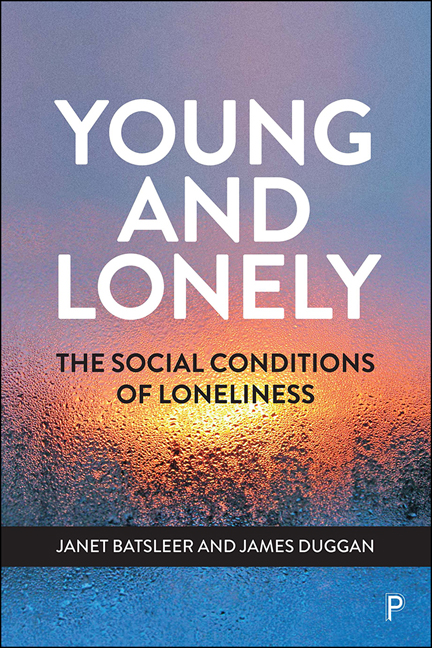Book contents
- Frontmatter
- Contents
- Notes on the Authors
- Acknowledgements
- Preface
- 1 Animate, Attune, Amplify
- 2 Finding Oneself a Loneliness Agenda
- 3 I’M New Here: Creating a New Research Project and A Young Person Led Research Agenda
- Part I The Social Conditions of Loneliness
- Part II The Experience of Loneliness
- Part III Building Friendship and Connection
- References
- Index
3 - I’M New Here: Creating a New Research Project and A Young Person Led Research Agenda
Published online by Cambridge University Press: 18 March 2021
- Frontmatter
- Contents
- Notes on the Authors
- Acknowledgements
- Preface
- 1 Animate, Attune, Amplify
- 2 Finding Oneself a Loneliness Agenda
- 3 I’M New Here: Creating a New Research Project and A Young Person Led Research Agenda
- Part I The Social Conditions of Loneliness
- Part II The Experience of Loneliness
- Part III Building Friendship and Connection
- References
- Index
Summary
The 2010 song ‘I’m new here’ by the poet and musician Gil Scott- Heron was chosen by one of the young people we worked with for the ‘Loneliness Playlist’ we made at the start of the research. From then on, the old man's gentle voice and chords accompanied the collaborative research project. It is poignant that this was an old man's voice saying ‘I am new here’. The song takes the listener quickly to a sense of not knowing, which can be both a place of possibility and a lonely place. The old man is in a bar; he is alone; perhaps he has refused to change to fit in with a group, and has moved on. The listeners do not know, just as he does not know, and must ask for help to find out.
While, as sociologists of youth claim, the lens of ‘youth’ does offer new insights into social relations, which are presented here, the underside of exploring this theme of ‘newness’ is a kind of uncertainty. This principle of ‘not knowing’ was an important accompaniment to the approaches to the subject of loneliness explored in this book, as such an agnostic stance pushes towards a deeper form of listening and engagement. This practice of uncertainty extended to not knowing ahead what value to place on the experience of loneliness, a consideration of the possibility that it might be pointing to something that is needed and that is of enormous value. Such uncertainty is an aspect of all relationality and yet it may be felt in particular ways when young. Loneliness may sing.
‘Being New Here’ took on a resonance beyond the experience of arriving new in a city or a bar. Everyone who gets to the age of 13 has never been 13 before. Everyone who reaches an age deemed ‘adult’ has never been adult before. This has been termed (and debated and deconstructed) as ‘transition’ in the youth studies literature. Ageing and being new and making significant transitions continues to be the case throughout life, and there are a number of significant life transitions. Nevertheless, the moment of experiencing loneliness alone for the first time is a moment in which possible responses are also shaped for the first time.
- Type
- Chapter
- Information
- Young and LonelyThe Social Conditions of Loneliness, pp. 23 - 36Publisher: Bristol University PressPrint publication year: 2020

